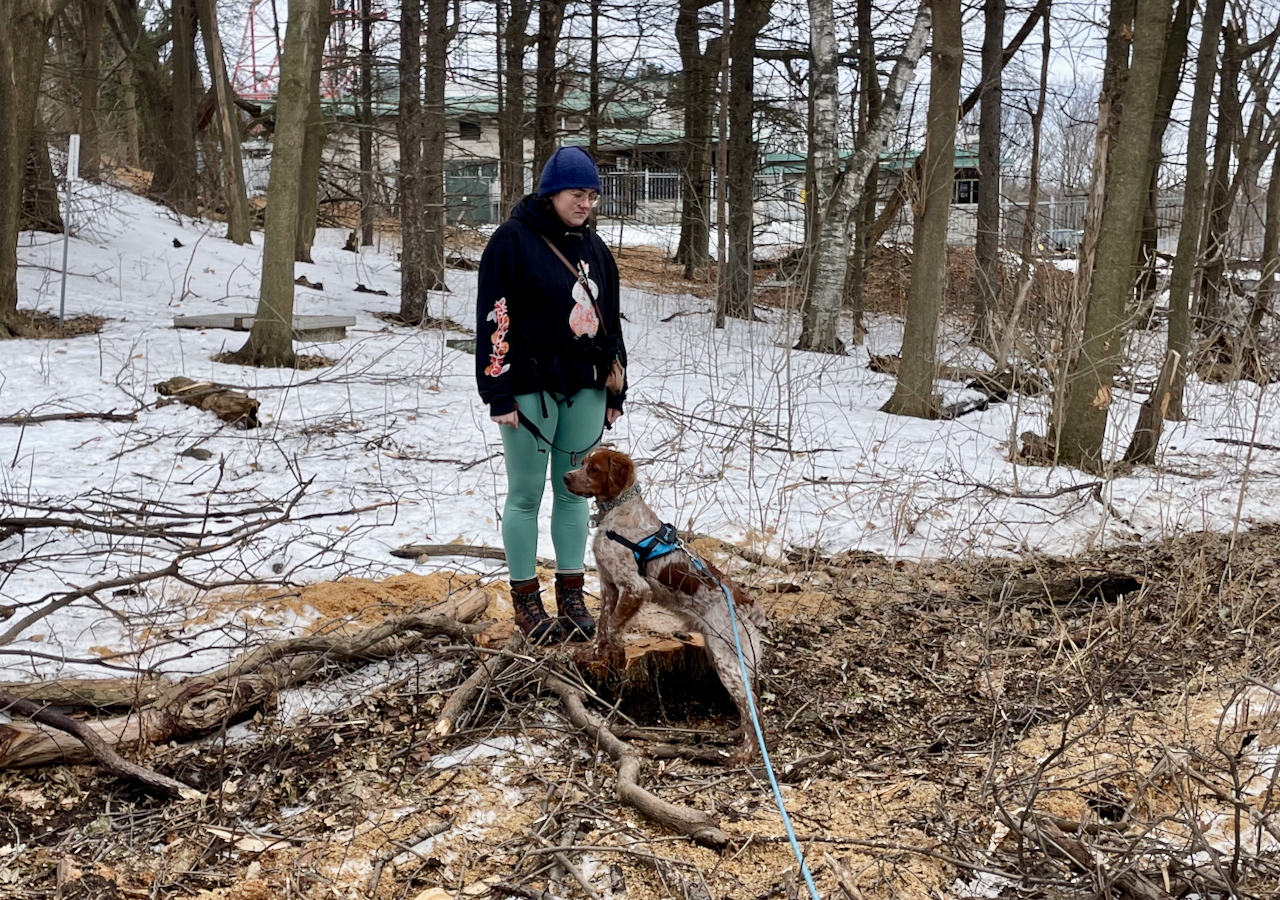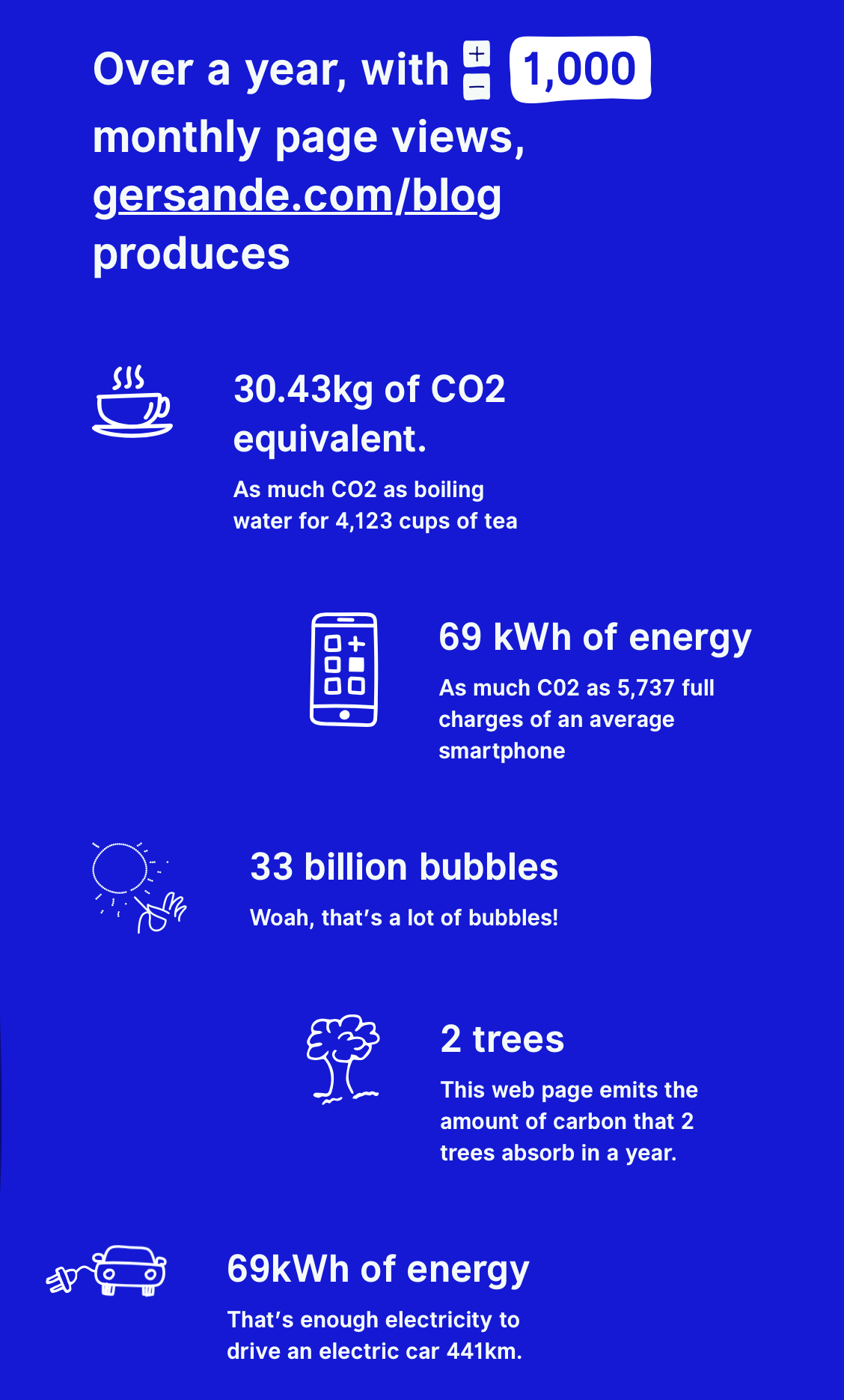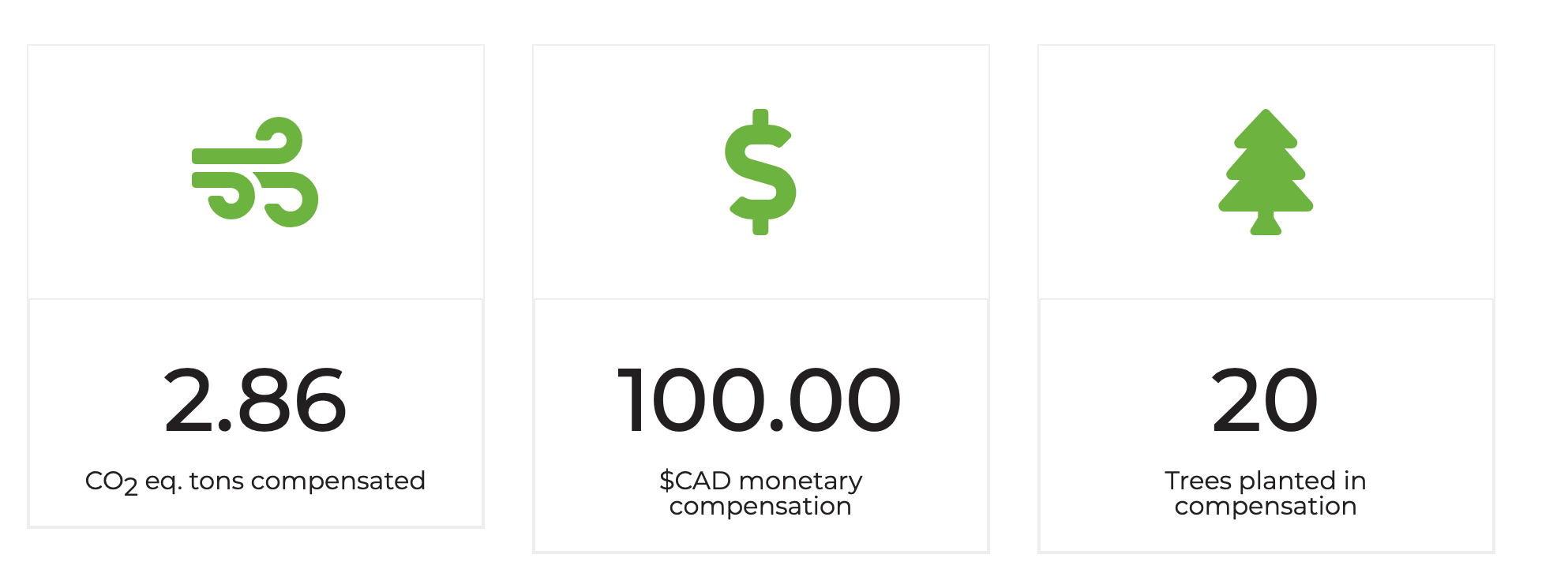Planting trees to offset the carbon footprint of my blog
I used the Website Carbon Calculator to figure out my blog's carbon footprint. The results are pretty bad.

I've been thinking a lot about downed trees and trees on fire in February[1]. Climate anxiety clings to me with every weird winter weather moment. Every time I enter a woodland in or around the island of Montréal, I see the signs foresters leave on trees that must be removed because of infestations. In the national parks, there are programmes to plant new trees. But new trees are at higher risk during wildfire, of disease, of draught, and can take decades to mature to the point where they are effectively storing the same amount of carbon as the former mature trees[2].
I came home from a moonlit walk (how wildly glorious is the moon tonight?) with Leif and the puppy with trees on my mind, and on a bit of a whim, started looking at website carbon footprints. In retrospect, I had recently read an article about the gargantuan carbon footprint of AI[3], which probably spurred that bit of googling. The Website Carbon Calculator was the first (and so far only) calculator I used to estimate my own website's footprint.
The results were not encouraging. The WCC uses a grading scheme from F to A, and my blog received a nice, big "F" grade.

Because I'm also running a blog in French (https://gersande.com/blogue/), Mille feuilles, and a Mastodon server among a few other very small online projects, I assumed that they would all similarly receive "F" ratings. So I rounded the estimate by multiplying that +30kg by 4, to a whopping 120kg of CO2 a year.
There are a few things I could do about this particularly bad grade. As Dodonut shares, there are definitely ways to design sites to have a smaller carbon footprint, though a site redesign for a blog as old as this one is definitely not a small task. For a few different reasons, changing web hosting providers (for all my web projects) is simply not something I can do right now. That leaves the idea of doing something to offset this carbon footprint, even though I have a lot of frustration about what a small measure (it feels like) carbon credits[4] are.
I ended up stumbling upon the Carbone Boréal project by the Université de Québec à Chicoutimi, which doubles as a forestry tree planting carbon offset programme (fully protected from commercial harvesting[5]) but also as an essential ecological research programme:
The boreal forest in Québec includes natural open woodlands that do not self-regenerate. The project aims at establishing research forests within these open woodlands, in collaboration with Québec’s Ministry of Natural Resources, while respecting forest ecosystems and boreal biodiversity.
The research aspect of this projects speaks to me. Especially since simple tree planting just doesn't cut it: Canada's forests keep catching on fire and haven't been a net carbon sink since 2001.[6][7]

I decided to donate 100 CAD to Carbone Boréal, which the project states is the equivalent of 2,86 tonnes (2860 kg) of CO2, or 20 trees.
I'm mulling over these small individual environmental acts (as opposed to systemic, collective ones) that this economic system makes available to me. I am not satisfied with any of it, but for a night's pondering and anxiety, it will have to be enough. We're so used to thinking of the internet as something intangible despite its ubiquity, but each webpage, email, scroll through an app, has a weight and a cost.
Benjamin Shingler for the CBC: It's the middle of winter, and more than 100 wildfires are still smouldering ↩︎
Torah Kachur for the CBC: As Trees Age, Their Climate Benefits Grow ↩︎
John Naughton in The Guardian: Why AI is a disaster for the climate
↩︎The implication is stark: the realisation of the industry’s dream of “AI everywhere” (as Google’s boss once put it) would bring about a world dependent on a technology that is not only flaky but also has a formidable – and growing – environmental footprint.
There's a rather good reason some environmentalists and researchers call carbon credits "excuses to pollute." ↩︎
Benjamin Shingler for the CBC: Why scientists say Canada's logging industry produces far more emissions than tallied ↩︎
Robson Fletcher for the CBC: Canada's forests actually emit more carbon than they absorb — despite what you've heard on Facebook ↩︎
Barry Saxifrage: Managed to death: How Canada turned its forests into a carbon bomb ↩︎
